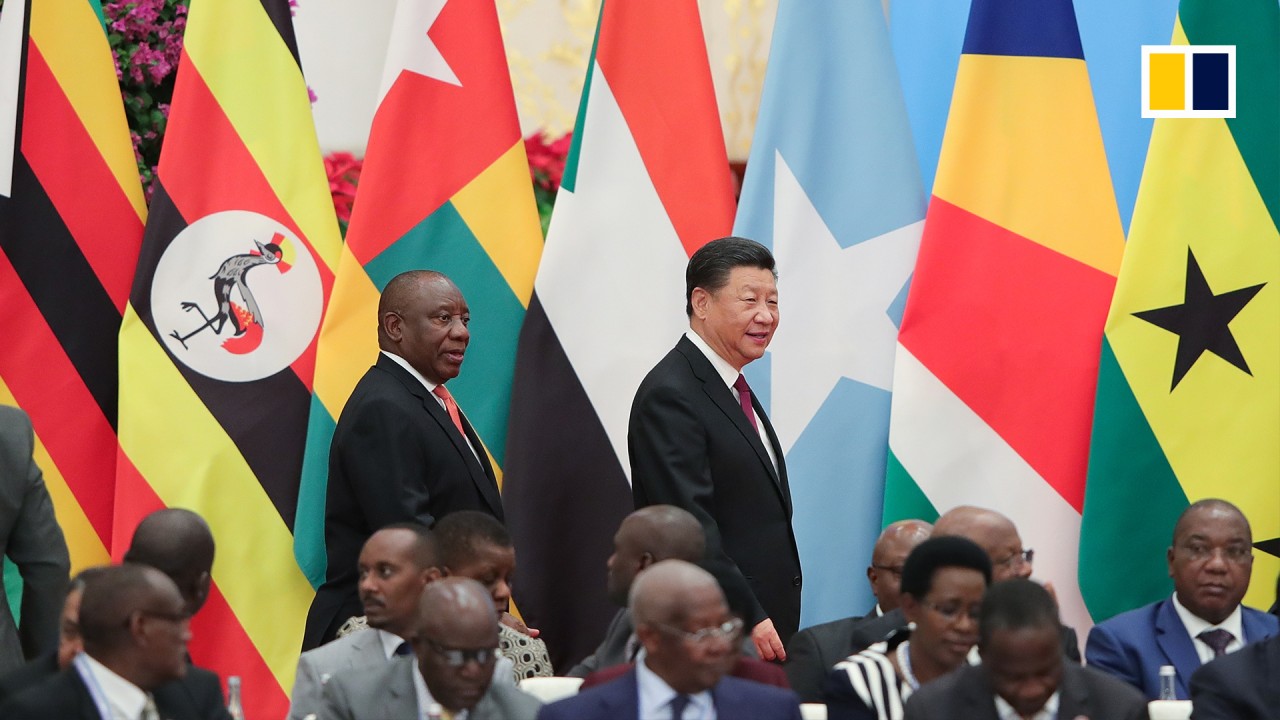
China, the US and a Twitter tit-for-tat over Congo cobalt contracts
- A Chinese ambassador and a former American envoy spar on social media about the DRC’s plans to review a series of infrastructure-for-minerals deals
- But the real picture on the ground is not so confrontational, an analyst says
When the president of the Democratic Republic of the Congo announced his decision, a former American diplomat was quick to offer support.
The US has no outward stake in the agreements, but Pham, now a fellow at the Washington-based think tank the Atlantic Council, gave his backing.
“[I] completely agree, [your] Excellency. This is why non-transparent agreements that swap real mineral resources for inferior or non-existent infrastructure are not in the interests of society even if they benefit those who signed the contracts,” he said on Twitter.
Zhu Jing, China’s ambassador to the DRC, was also quick to respond, warning that the Central African nation “must not become the battleground for great powers”.
“No one has the right to use the country, a sovereign and independent state, to satisfy its own interests,” Zhu tweeted.
Why China is making a big play for Congolese cobalt – and other critical minerals
Tshisekedi wants a US$6 billion deal covering infrastructure and minerals signed in 2008 with Chinese companies to be reviewed.
The agreement was signed under the administration of former president Joseph Kabila and gave Chinese companies access to cobalt and copper in exchange for infrastructure.
Congolese state-owned commodity trading and mining company Gecamines formed a joint venture named Sicomines with a consortium of Chinese firms led by Sinohydro and China Railway Engineering Corporation to develop a copper and cobalt mine for US$6 billion.
Kinshasa maintains that it has not benefited much from the arrangement but China says it has built several projects in the Central African nation despite obstacles, including a lack of power to develop the mines.
One of those projects is the US$660 million Chinese-built Busanga Hydropower Station.
The first unit has been commissioned and once completed the project will generate 10 per cent of the DRC’s power, according to Wu Peng, director general of the Chinese foreign ministry’s department of African affairs.
But the DRC says it wants to take another look at the terms of the deal.

02:28
China invests billions in Africa
It said this would help determine the true value of the government’s shareholding through its state-owned Gecamines, which owns 20 per cent.
In addition, Congolese officials in South Kivu province have suspended six Chinese firms’ operations over illegal mining and destruction of the environment.
Zhu hit back, suggesting that at least one American firm was among those accused of illegal mining in South Kivu and questioning whether the US would take any action against it. “Those who are really strong must take responsibility,” he said.
Pham responded by saying “no company of USA is on this list. Welcome, excellency, to the celebration of being a responsible business partner in the mining sector. The strong speak the truth”.
Cobalt blues: Congolese miners, and China’s role in improving their conditions
Christian-Geraud Neema, an independent Congolese mining and policy analyst, said Pham had offered constant support for the revision process.
“[But] let’s keep in mind that he [Pham] doesn’t currently hold any official position in the US administration and his views cannot be, for now, attributed to the US administration,” Neema said.
Nevertheless, there had been reports that Washington had been pushing the Tshisekedi administration to revise the Chinese contracts.
In June the independent news source Africa Intelligence reported that the DRC was under pressure from Washington to renegotiate mining contracts believed to have benefitted Kabila’s political allies.
Neema said another element was related to US$1.5 billion that the DRC was supposed to receive from the International Monetary Fund on the condition that the country reviewed its mining contracts with China.
He said that in terms of rivalry, “we know that China is the main actor on the cobalt supply chain. The dependence on China is worrying factor for many in the West as well as in the automobile industry”.
“So that alone can be a cause of friction between not only the two countries but also between China and other major actors in the industry,” Neema said.
Cobalt prices soar as China stockpiles metal used in smartphones, electric car batteries
The DRC controls more than 60 per cent of the world’s reserves of cobalt ore, which is mostly exported to China for processing to make batteries for electric cars, weapons, machinery and electronics.
Other Chinese companies operating in the DRC include Huayou Cobalt, Chengtun Mining, Wanbao and CNMC.
The US has previously had substantial mining interests in the country – Freeport-McMoRan operated the TFM project before it sold a major stake to China Molybdenum in 2015.
Last year, the American firm ceded control to China Molybdenum of another mining site known as the Kisanfu copper-cobalt project.
“This project itself contradicts the narrative of a ‘US vs China’ in the DRC,” Neema said.
“As much as we may have people in Washington or elsewhere who might be worried about the increasing Chinese control over the Congolese cobalt, there are still some American companies and Canadian – such as Ivanhoe with the Kamoa-Kakula project – who are in business with China in the DRC.”

